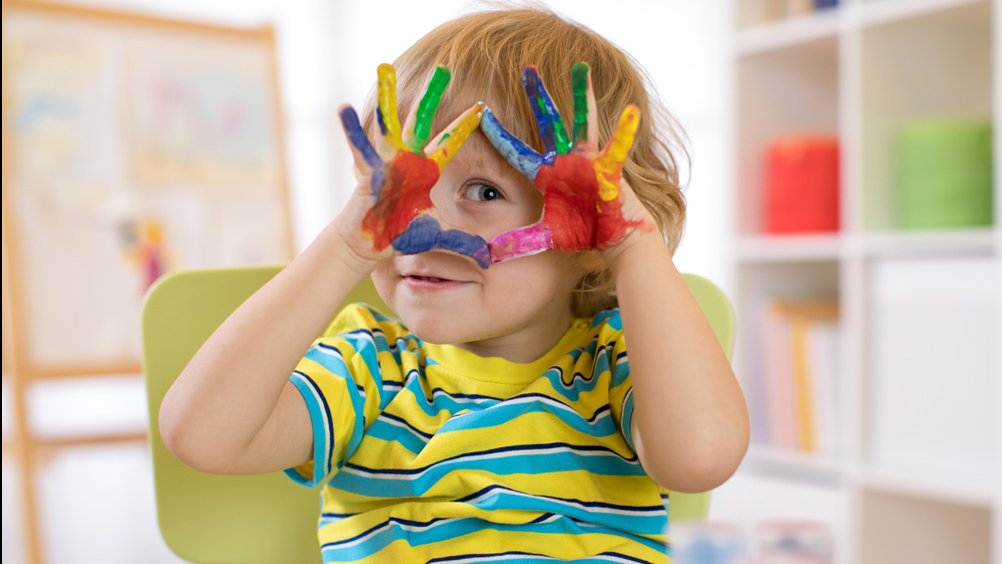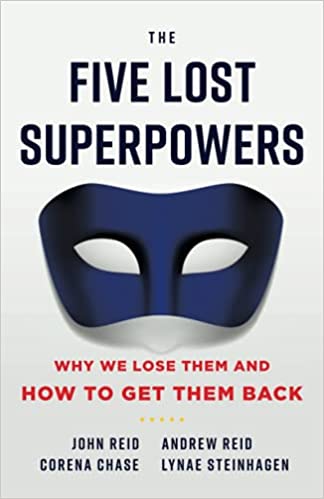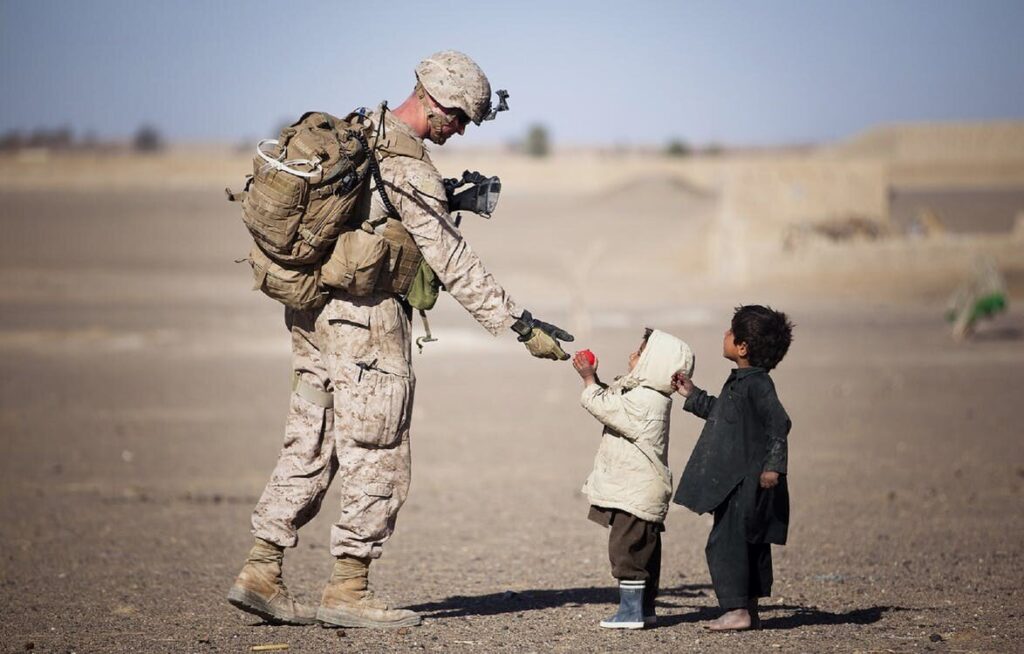Have You Lost Your Superpowers?

As I now consider myself a career educator, instructing martial arts for 20+ years and nearing 10 at the university level, I am blessed to be in a unique position to teach a very wide range of students. On the daily, I interact with children as young as 4 years old to adults in their 60s. I am always fascinated with the dynamics among groups of students, how to go about teaching, and how each learns differently.
I recently read an excellent book The Five Lost Superpowers by John and Andrew Reid, Lynae Steinghagen, and Corena Case. As children grow physically and mentally, they exhibit a wide variety of traits as they explore and discover who they are as individuals. Some of the very traits that help define us as people are subdued, even lost, moving toward adulthood.
Remember exploring a new place with your friends? Where did that natural curiosity go? How about not having a care in the world about what other people thought? What happened to our authenticity? How about playing and doing stuff just for the fun of it? Where did our imaginations go? Who remembers falling down but getting up and back to playing? What happened to our toughness?
There is evidence that children are psychologically healthier than adults because they don’t suppress any feelings or emotions. When they’re happy they laugh, sad they cry, scared they hide, mad throw a temper tantrum (as parents we know that one all too well!). They will flip on a dime as well. One minute laughing hysterically and the next bawling in tears. Because kids express every emotion the moment they experience it nothing is suppressed, harbored, or bottled up eventually manifesting as the very anxieties and stresses adults cope with on the daily.
Curiosity
Those of us with children of our own know all too well the constant Q&A involved. Children are naturally inquisitive creatures; they don’t know anything and trying to make sense of the world. Studies show children are known to ask as many as 100 questions per hour. Unfortunately, that natural curiosity wanes during the school years. Structured curriculums and order are expected within the classroom. Children soon sit quietly so not to be disruptive, suppressing their naturally curious urges.
I see this all the time in the gym and at the university level. Any questions?…crickets. The smartest people in the world ask questions. The best leaders ask questions. Successful entrepreneurs ask questions. Curiosity allows us to try new things. It broadens our experiences and knowledge of the world.
Authenticity
Raise your hand if your child has ever said something totally inappropriate or embarrassing out loud in public. Yeah, me too…good times. Sometimes a truly hilarious moment, others we nervously laugh it off hoping the target of the slight wasn’t completely offended. There is no ill will, the child is simply stating what is observed.
Societal norms soon teach us what is appropriate and inappropriate to say in public. Authenticity doesn’t mean being offensive, it is simply saying what is on your mind and meaning what you say. Expressing thoughts as they are. Most everyone knows exactly what’s on a child’s mind or what mood they’re in because they tell us. As adults, we hide emotions and bury thoughts so not to offend someone, appear ignorant, or simply out of fear of expression. All of which prevent our authentic selves.
Compassion
Watching my kids play sports is one of the most fulfilling things I do. Even in an organized sporting event their immediate emotions still reign supreme. Both will laugh in the middle of a game when something strikes as funny. Both too will stop mid game to help another player that falls or gets hurt. My competitive adult brain wants to yell don’t worry about them keep going but their instinct is to stop and help. Their compassion for another comes naturally and automatically.
Compassion is often confused with empathy and sympathy. Compassion is recognizing the distress of another and acting to alleviate it. Empathy is the process of feeling what someone else is feeling, putting yourself in another’s shoes. Sympathy refers to feeling bad or happy for someone else’s situation. Compassion is action; empathy and sympathy are emotional experiences. Empathy is a big, big buzz word in America today. There is no shortage of discussion about being more empathetic toward others, but shouldn’t we really be striving to be more compassionate? Acting and helping others rather than just feeling the emotions of their moment.
Resilience
Two things will make you better…Toughen Up! Those were the words of one of my coaches. A little harsh by today’s standards of sensitivity but very much the norm then. How many of us remember falling down on the playground, getting up, and continue playing? Kids are incredibly resilient people. Everything is new, change is constant in their lives. They are elastic, bending to whatever comes their way with no worries of what might happen; living in the moment.
Adults often find newness and change chaotic and stressful to the point of experiencing anxiety. Fear of unknown makes us resistant to change. Resilience has become a topic of discussion throughout corporate America as adults indicate high levels of anxiety and stress. Companies conduct resilience training for employees to help them cope with and ensure a positive experience during times of change. As adults we need to remind ourselves to toughen up sometimes. Nothing is the end of world.

Playfulness
When is the last time you just played outside as an adult. Yeah, we can rationalize adults play differently than kids by taking vacations or having drinks with friends but it’s hard to argue the type of play kids engage in seems a lot more fulfilling. Kids naturally play with anyone and anything often creating a game out of thin air or entertaining themselves with nothing but their imagination. They are completely engrossed in the activity with zero concern or worry about anyone or anything around them.
One of the beauties of having kids is reminding ourselves what it’s like to play again. As adults we stop playing because our priorities say work, study, raising kids, etc. are more important and play takes a back seat. When adults do try to play they worry about who is watching, what others think, the amount of risk, or how much is being wasted. When we stop playing, we stop tapping into our creativity, spontaneity, and imagination. We stop having pure fun.
The traits that make kids free spirited, optimistic, and all loving creatures are the very same we stray as adults. Do you still have your superpowers? If not, maybe it’s time to go looking for them!
Everyday Is Training Day – Reap What You Sow


